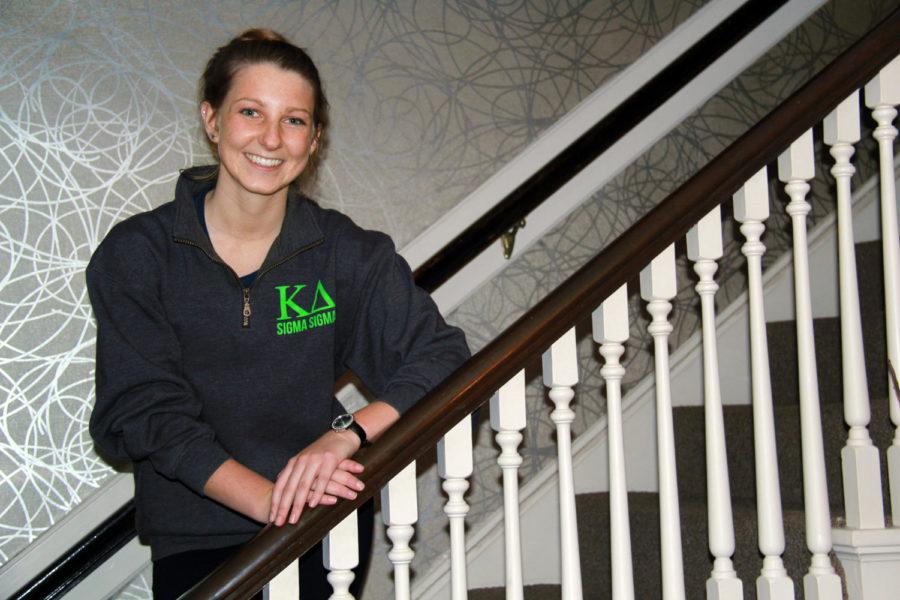Kappa Delta finds success in colonization
Photo: Blake Lanser/Iowa State Daily
Elissa Englert, vice president of Kappa Delta sorority, revamped the recruitment process for Kappa Delta.
February 7, 2013
Low recruitment quotas led to big changes and a new face for ISU’s Kappa Delta chapter.
Starting off recruitment with only 12 members and ending with 81 new members, Kappa Delta successfully restructured their house in fall 2012. More than 140 women went through informal recruitment.
The sorority now strives to have well-rounded individuals and continue to look for women who are “the most qualified and a best fit” to the chapter, said Carly McKinney, president of Kappa Delta and senior in English.
Kappa Delta opted out of participating in formal recruitment with the rest of the greek community to hold selective informal recruitment. The sorority needed time to work on promotional strategies, which resulted in olive green and pearl white Kappa Delta buttons.
McKinney said during the past three years the Kappa Delta chapter has started and continues to move to a value-based recruitment system, meaning women are judged as a “whole package.”
Kappa Delta now follows a colonizing method to rebuild the entire sorority. When a house goes through colonization, new members are not chosen by the chapter’s current members. Sorority members currently enrolled at the time of colonization have been placed on alumni status and removed from the house, said Courtney Millard current member of Kappa Delta.
“Doing informal recruitment was a positive experience,” McKinney said.
The National Leadership Team, which comprises of women who do not have any connection to the school or house, chose the new members. According to the Kappa Delta official website, when a house colonizes, women without greek connection or previous greek knowledge are more likely to be interested in recruitment.
“The house has grown exponentially and has gained a lot of great members and alumni base.” McKinney said. “We are developing skills as a social sorority.”
During the restructure, the fraternities and sororities of Iowa State brought gifts to the house to show their support.
Courtney Millard, junior in nutritional science, decided to join Kappa Delta after changes were made this fall.
“I fell in love with Kappa Delta because of the philanthropy. They try to help children by giving them better opportunities,” Millard said.
Prevent Child Abuse America is one of Kappa Delta’s philanthropies. However, Kappa Delta is not hosting a philanthropy event this year because they are “trying to build a foundation of everything else” before moving forward, said McKinney.
Philanthropy events will begin next fall.
Prevent Child Abuse America has been supported by Kappa Delta since 1981. More than $10.6 million has been raised to help prevent child abuse in America.
“We want to be a thriving chapter to help the greek community as a whole. We are excited to see what the next few years hold for us. We are excited to grow,” McKinney said.
Kappa Delta is becoming a larger part of the greek community as a result of the new changes and will continue to recruit new members throughout 2013. The house has grown rapidly, hoping to prove that working from the ground up can build a strong community of women.







